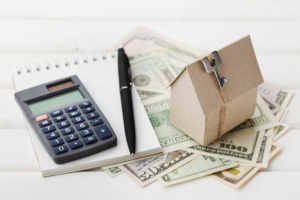
Smart Financial Planning After a Home Purchase
So, you’ve purchased a new home! This significant milestone is just the beginning of a journey filled with personal achievements and joyous memories. However, it’s also the start of a new financial chapter. Smart budgeting after purchasing your home, understanding property taxes, and managing ongoing expenses will help you maintain financial stability and enjoy home ownership to the fullest.
Budgeting After Buying Your Home
Buying a home likely involved saving for a down payment and maybe even making some sacrifices along the way. But the financial planning doesn’t stop at the closing table. It’s essential to adjust your budget to accommodate not only your mortgage but also the less-discussed ongoing costs such as homeowners association (HOA) fees, maintenance, repairs, and utility increases. Start by reviewing your monthly income and expenses, and allocate funds for savings, emergency home repairs, and regular maintenance. Remember, a little foresight can prevent a financial challenge later.
The keys to your new home come with new responsibilities and a need for a revised budgeting strategy. Here’s how to navigate your finances once you cross the threshold into homeownership.

Understand Your New Monthly Expenses
Your monthly housing costs likely extend beyond your mortgage payment. It’s critical to account for:
- Home Insurance: This may be higher than renter’s insurance and can change based on your coverage level.
- Property Taxes: Often included in your mortgage payment, but they can fluctuate with changes in property assessments or tax rates.
- HOA Fees: If applicable, these fees can also rise annually.
- Utilities: These might be higher than in a previous living situation, especially if you’ve moved into a larger space.
Plan for Maintenance and Emergency Repairs
A rule of thumb is to budget 1-3% of your home’s purchase price annually for repairs and maintenance. For instance, a $300,000 home might necessitate $3,000 to $9,000 per year in maintenance costs. Start building an emergency fund for those unforeseen issues, like a broken heater or a leaking roof.
Consider Your Lifestyle Changes
With a new home, you might be traveling more or less, entertaining more, or changing how often you dine out. Your lifestyle changes need to be reflected in your budget.
Factor in Furnishing and Decor
You might be eager to furnish every room quickly, but it’s wise to spread out these purchases. Prioritize essential items first and then budget for additional pieces over time.
Re-evaluate Your Long-Term Financial Goals
With a mortgage, you may need to adjust your savings plan for other long-term goals. Don’t let retirement contributions or your emergency fund slip through the cracks.
Automate Where Possible
Consider automating your mortgage payments, utility bills, and savings contributions. Automation helps ensure payments are made on time and savings goals remain on track.
Review and Adjust Regularly
Make a habit of reviewing your budget monthly in the first year and then at least semi-annually thereafter. This will help you stay on top of your finances and adjust as needed.
Moving Expenses and Planning Ahead
As you settle into your new home, remember to account for initial moving costs in your budget. Hiring professional movers can be part of your plan. While it’s an added expense, it’s an investment in the safety of your belongings and your peace of mind.
Property Tax Tips
Property taxes can be a surprise for new homeowners, especially if they’re accustomed to renting. Your property tax bill depends on your home’s assessed value and your local tax rate. Make sure to understand when taxes are due and if your mortgage lender includes these costs in your monthly payment through an escrow account. If they don’t, it’s up to you to budget for this annual or semi-annual expense. Also, be aware of any exemptions or reductions you may qualify for, such as homestead exemptions.

Managing Home-Related Expenses
Ongoing home-related expenses can add up. These include home insurance, potential mortgage insurance, repairs, and upgrades. Always aim to set aside a portion of your income for these expenses. An excellent way to manage is by creating a dedicated savings account for your home where you can deposit a small portion of your paycheck each month. This account can act as a buffer when unexpected costs arise or when you want to make improvements to your home.
Ongoing Maintenance Costs
Regular maintenance is crucial to keeping your home in good condition and retaining its value. These expenses include:
- Landscaping and yard care: Regular lawn maintenance, tree trimming, and gardening.
- HVAC maintenance: Annual servicing of heating and cooling systems to prevent costly repairs.
- Pest control: Routine inspections and treatments to prevent infestations.
- Cleaning services: You may opt for professional cleaning for larger homes or for tasks like window washing and gutter cleaning.
Repair and Replacement Reserves
Aside from regular maintenance, you’ll need to budget for repairs and eventual replacements:
- Appliances: Dishwashers, washing machines, and refrigerators have finite lifespans.
- Roof and gutters: Repairing or replacing a roof can be a significant expense.
- Plumbing and electrical systems: These critical systems may need updates, especially in older homes.
- Painting and flooring: Interior and exterior paint requires refreshing every few years, and flooring may need to be replaced due to wear and tear.
Utilities
Utility costs can be higher than expected, particularly if you’ve moved to a larger space or a region with more extreme weather:
- Electricity and gas: Dependent on usage and climate.
- Water and sewer: Can vary widely depending on local rates and personal consumption.
- Trash and recycling: Some areas may charge more for these services.
Home Improvement and Upgrades
Improving your home can both increase its value and enhance your enjoyment of the property:
- Renovations: Kitchen and bathroom upgrades typically offer good returns on investment.
- Technology: Smart home devices for energy efficiency and convenience.
- Décor: Furniture, artwork, and decor that suit your personal taste and comfort.
Safety and Security
Ensuring your home is safe and secure might include:
- Security systems: Installation and monthly monitoring fees.
- Smoke and carbon monoxide detectors: Regular testing and replacement.
- Insurance: Homeowner’s insurance premiums can rise with property value increases or claims.

Considering Your Moving Budget
When it comes time to move into your new home, hiring professional movers can be a wise investment. Movers can provide efficiency, convenience, and peace of mind, helping to protect your belongings and allowing you to focus on settling into your new environment. While it’s an additional cost, budgeting for movers can prevent last-minute financial stress.
Financial health after purchasing your new home is about preparation and smart budgeting. With a solid plan, you can cover your mortgage, property taxes, and home-related expenses without undue stress. And when it comes to moving into your new home, remember that a reliable moving company can be worth its weight in gold. At Find Movers Now, we understand the value of careful financial planning, and we offer competitive quotes from local movers that fit your budget without compromising on quality service. We’re here to make your move as smooth and stress-free as possible – because your journey matters to us, every step of the way.
Leave a Reply